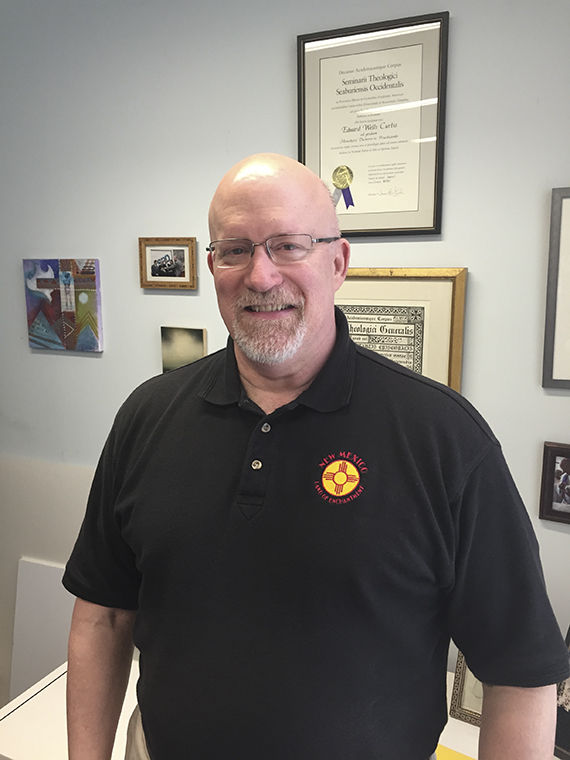Notable Native: Ted Curtis
Rev. Ted Curtis
May 11, 2015
TED CURTIS HAS been the rector, also known as the pastor, at Grace Episcopal Church at Chicago, 637 S. Dearborn St., in Printer’s Row for 24 years.
Curtis is dedicated to practicing the church’s mission of social justice, which is living in the community, growing in Christ and serving the world. He retires on May 31.
Curtis has helped host the church’s weekly Saturday Breakfasts with the First United Methodist Church of Chicago at Grace Place each week for approximately 200 homeless people and was involved in the South Loop Campus Ministry. The ministry reaches out to students in the South Loop, including Columbia College. One of the church’s main activities is “Taking It to the Streets,” where students and South Loop campus Ministry Chaplain Ben Adams provide meals for residents of the streets.
Along with these projects, Curtis brought The Night Ministry to Grace Place, a program where community members deliver sandwiches to homeless Chicagoans.
The Chronicle spoke with Curtis about his role as Grace Episcopal Church’s rector, some of the activities he has organized and his plans for retirement.
THE CHRONICLE: What makes this church different from others?
TED CURTIS: Part of our concern for people is in the DNA of the hospital complex. We have done a lot of work here on housing. We helped build the studios at 1801 S. Wabash Avenue, which is a single occupancy dwelling for 170 people. We were a coalition of 12 downtown religious organizations that built that. We have partnered for the past 10 years with the Chicago Temple. They have a breakfast here every Saturday morning for almost 200 people. We have done a lot on peace and justice for racial reconciliation work and lesbian, gay, bisexual and transgender work. What is different is that some congregations are pretty conservative. An average person might think that Christianity is mostly conservative, but this church has been on the liberal side for a century or two.
Why did you choose to work for this church?
We have been a very small church for the last 100 years with under 100 members. When you live in a city, you can be surrounded by millions of people but you do not know any of them and you cannot connect to them. I think one of the strong suits of this congregation is that we are small. It is high relationship, high letting people be themselves, low control, high worship, high do good work and high support for people.
Can you describe the Saturday breakfasts at the church?
It is the Chicago Temple’s program. It is called the Chicago Temple/the United Methodist Church—they are the church tower across from the Daley Plaza. They do the breakfast 51 Saturdays a year. People start lining up at 6:30 in the morning, the doors open at 8:30 a.m., and the breakfast has a great feel because the build- ing is so hospitable, everyone has a name tag including the volunteers. Everyone calls each other by name. Many of the guests help out with the tasks. It is a marvelous thing they do.
Can you describe the Grace Place music series?
Part of our outreach is to reach out to the colleges in Chicago. The Lutherans and Episcopalians funded an Episcopal Lutheran campus chaplaincy that does a lot of the programs here in Grace Place. We also started a concert series with the graduate students at Roosevelt University. It is great for students because it gives them a place to sing outside of their school walls and they get a real world audience.








